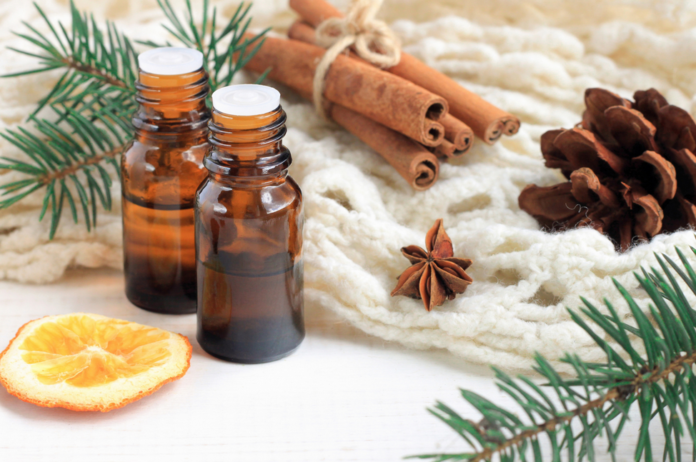Fun fact: The Duchess of Sussex doesn’t travel without a bottle of tea tree oil.
She says it may not be glamorous, but tea tree oil is a cure-all. It can work on cuts, mosquito bites, pimples, etc.
How about you? What’s your favorite essential oil? Or perhaps you’ve never understood the hype and want to know if they’re worth trying.
How do essential oils work, anyway? Let’s talk about what they are, their types, and their uses. We’ll also discuss how you can choose the best ones to try, especially for essential oil newbies.
First Things First: What Are Essential Oils?
When you buy fragrance oils, you’ll often see flavors with names like coconut paradise, amber romance, etc. There are also blended ones, such as green tea and lemongrass, bergamot orange, and so on. This link can give you a better idea of what fragrance oils are.
However, fragrance oils aren’t essential oils because the latter don’t contain additives. Essential oils are natural and pure plant extracts containing unique aromatic compounds.
Distillation and cold pressing are the most common methods to obtain essential oils, but you can also use extraction with solvents. Note that essential oils shouldn’t be used neat and must always be mixed with a carrier oil.
So How Do Essential Oils Work?
There are many types of essential oils, and they have different uses. Essential oil uses range from stress relief to improving focus, fighting infections, aiding digestion, etc.
Keep in mind that there are over 90 types of essential oils, and finding the best ones for you will involve trial and error. What’s important is you choose oils from reputable brands because they primarily work through inhalation (aromatherapy) and skin absorption.
If you’re using essential oils with impurities, they could irritate your skin, nose, mouth, and respiratory system. You should also know that even pure oils may cause side effects. The word “natural” doesn’t automatically mean “safe,” and they’re even more dangerous when ingested.
Some Tips for Choosing the Best Essential Oils
Beyond knowing the difference between essential and fragrance oils, researching will help you a lot. High-quality essential oils don’t only say lavender, peppermint, or lemon on their labels. The Latin names of the plant species will be listed.
You should also ignore marketing buzzwords like “therapeutic grade.” The FDA doesn’t regulate these terms, and it’s not a guarantee of a product’s quality.
What you can trust, though, is your nose. It won’t lie to you since pure essential oils will smell potent just from opening the bottles. Cost is also an indicator of quality since it takes plenty of plant materials and labor to fill a small container with pure essential oil.
There’s an Essential Oil for That
Now that you know the answer to “how do essential oils work?” are you ready to try them?
You can start slow and use it for aromatherapy as long as you get a high-quality essential oil combined with a carrier oil. You can also use tea tree oil like Duchess Meghan and apply it to wounds, pimples, etc.
For more information on essential oils, you may check our other posts.










